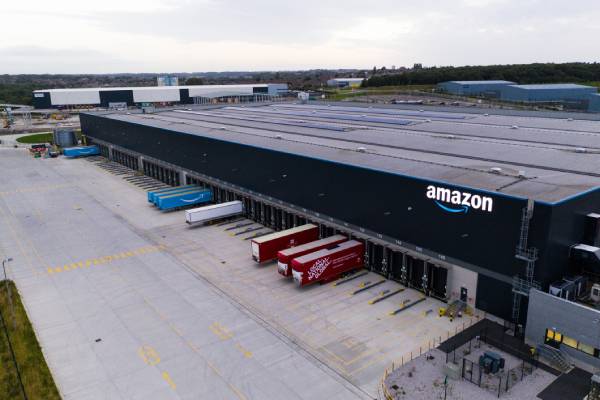
Amazon is considering a $15 billion warehouse expansion plan that would add approximately 80 new logistics facilities across U.S. cities and rural areas, Bloomberg reported Wednesday, citing people familiar with the matter.
The proposed facilities would primarily be delivery hubs, with some including large, automated fulfillment centers. The company is currently seeking proposals from capital partners and is reportedly open to long-term leases ranging from 15 to 25 years. Select locations could potentially receive direct investment from Amazon.
“Meetings like this with our capital partners are routine and part of the normal due diligence process, as we consider potential, future projects,” said Amazon spokesperson Steve Kelly. He added that the projects remain under discussion and have not been finalized.
If the plan moves forward, it would mark Amazon’s return to warehouse development after a pandemic-era construction boom followed by a pullback. During COVID-19, Amazon invested heavily in its retail infrastructure, at one point incurring $2 billion in quarterly costs for excess warehouse and transportation capacity. The company later shifted focus to its cloud and AI businesses.
The expansion news comes as global trade tensions escalate. On Wednesday, China raised tariffs on U.S. goods to 84%—up from 34%—in response to U.S. President Donald Trump’s new 104% tariffs on Chinese imports. The European Union also announced new trade barriers.
Separately, Amazon has reportedly canceled orders for beach chairs, scooters, and other products made in China and Asia. Bloomberg cited a document and sources who said the cancellations followed the April 2 tariff announcements and came without warning, leaving some vendors to suspect the move was a direct response to the new trade policies.
Amazon currently operates more than 600 fulfillment centers, delivery stations, and same-day facilities across the U.S. The industrial real estate market, meanwhile, is showing signs of cooling, with vacancy rates exceeding 7% for the first time since 2014, according to Jones Lang LaSalle.